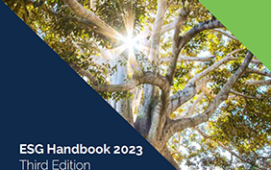
Together, AI and interoperability have the power to transform trader workflows in financial markets. Driven by the need for greater efficiency and performance, the promise of AI in decision-making and trade execution is now being realised through the integration of existing systems with new AI-based capabilities. This open, interoperable approach enables seamless workflows and personalised experiences, allowing traders to rapidly access key data and analytics, identify trading opportunities, and make more informed decisions more quickly. These advancements are reshaping the trading landscape, not only creating new opportunities for traders to thrive in a dynamic and competitive environment, but also leading to increased efficiency, time savings, and improved performance.
A new white paper produced by A-Team Group and commissioned by London Stock Exchange Group (LSEG), Re-Imagining the Trading User Experience: How Interoperability and AI are Changing Trader Workflows, examines the joint impact of interoperability and AI on trader workflows and provides guidance on deploying AI to enhance the value of trader desktops and systems.
Beyond Trade Execution
Today’s traders generally utilise a multitude of applications on the trading desk, which often requires switching back and forth between various services and systems, a process that can be both time-consuming and inefficient. Historically, trading workflows have been compartmentalised, with traders relying on separate applications for news, analytics, order and execution management, and more.
The advent of interoperability, which allows firms to seamlessly integrate multiple applications through a single desktop environment, and the adoption of collaboration tools such as Microsoft Teams, provides an optimal environment for incorporating new AI-based tools into trader workflows, which can bring about a wide range of benefits.
The application of AI in trading workflows transcends trade execution. By learning from previous actions, AI tools can augment pre-trade discovery by scanning relevant data and news, identifying patterns, and offering insights into market movements to provide recommendations and suggestions based on a comprehensive understanding of information supply. And because interoperability facilitates interactions between applications, traders enjoy a unified experience that presents relevant information in an easily digestible format. AI-powered copilots can also expedite complex pricing or structuring tasks, reducing response times and enhancing overall efficiency.
Maximising Information Value
The profound impact of these capabilities should not be underestimated, as they can be applied across the entire trading workflow, from pre-trade to post-trade. One of the primary benefits of the coming together of AI and interoperability is the ability to unlock the value of vast amounts of information that would otherwise remain hidden or underutilised. By applying AI, practitioners can tailor this wealth of information to individual needs.
Moreover, traders can augment their unique perspectives with external market factors. By building AI systems that reflect their proprietary stance on market situations, traders can gain insights and analyses of market developments in real time. This empowers them to make more informed decisions and capitalise on emerging opportunities.
This also extends to post-trade processes, enabling firms to assess execution quality and introduce predictability into their pre-trade liquidity-seeking efforts. By analysing past execution performance, traders can identify the best venues and providers for optimal execution.
The integration of AI, interoperability, and collaboration in trading workflows has the potential to revolutionise the industry. It allows for the discovery of valuable information, streamlines workflows, and enhances decision-making processes. By leveraging these technologies, traders can navigate the complexities of the market with greater confidence and efficiency, ultimately driving better outcomes for all stakeholders involved.
To learn more, download the white paper here: Re-Imagining the Trading User Experience: How Interoperability and AI are Changing Trader Workflows.
Subscribe to our newsletter





